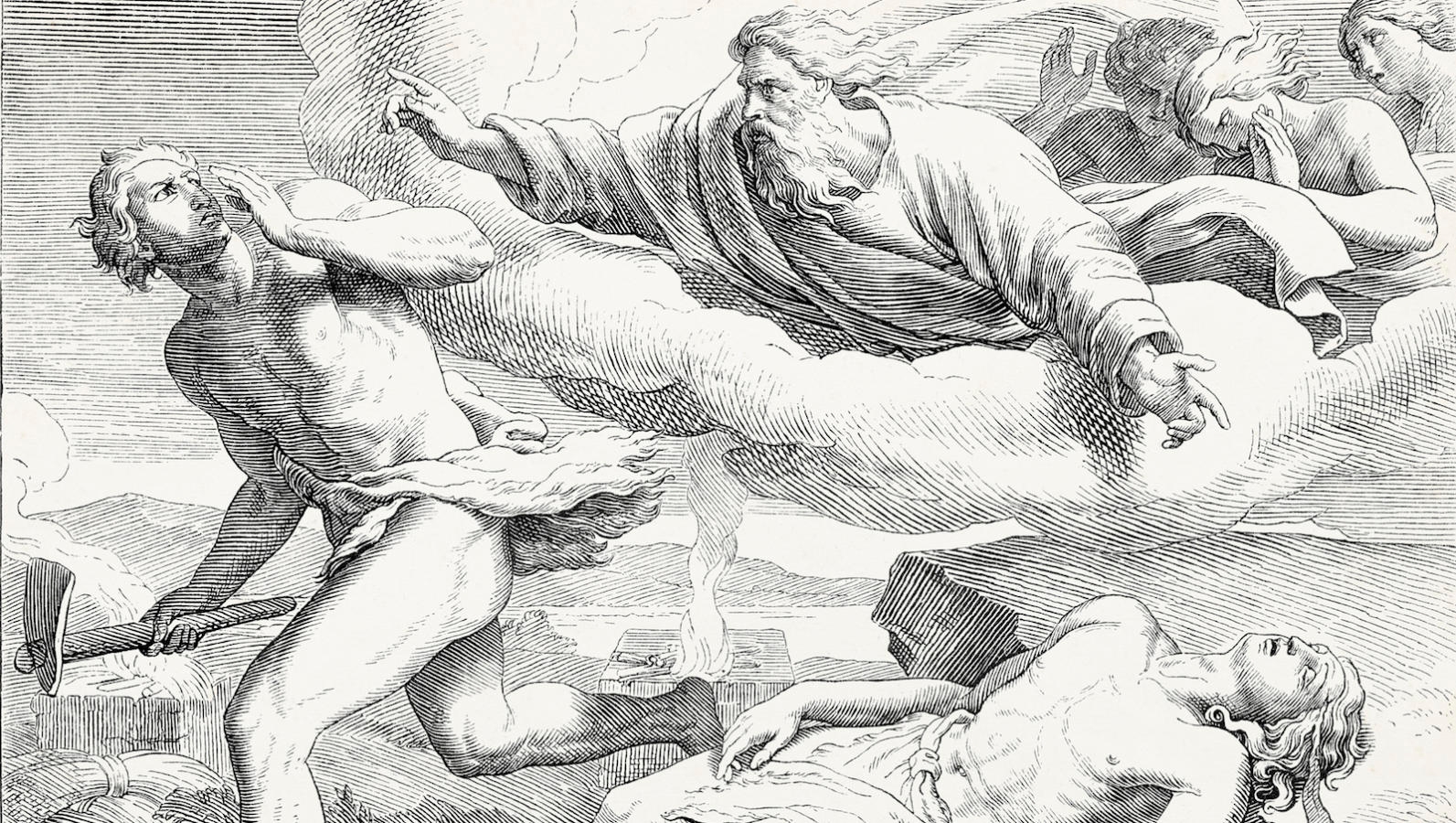Looking for a Miracle
A man brings some very fine material to a tailor and asks him to make a pair of pants. When he comes back a week later, the pants are not ready. Two weeks later, they still are not ready. Finally, after six weeks, the pants are ready. The man tries them on. They fit perfectly. Nonetheless, when it comes time to pay, he can’t resist a jibe at the tailor.
“You know,” he says, “it took God only six days to make the world. And it took you six weeks to make just one pair of pants.”
“Ah,” the tailor says. “But look at this pair of pants, and look at the world!”
Jokes aimed at God tend to be the gentlest in the Jewish tradition — ironic digs, rather than belly laughs. More than any other contemporary comedian, Woody Allen is the master of this genre: “If only God would give me a clear sign of His existence. Like making a large deposit in my name in a Swiss bank account.”
In Allen’s film Love and Death, the character of Boris Grushenko mines the same vein: “If I could just see a miracle. Just one miracle. If I could see a burning bush, or the seas part, or my Uncle Sasha pick up a check.” Elsewhere, Allen makes a simple commonsense appeal to God: “I don’t want to achieve immortality through my work; I want to achieve it by not dying.”
God’s Seeming Indifference
The disparity between God’s perfection and the imperfection of the world He created inspires much of the humor about God. Indeed, the complaining spirit that runs through many anti-God jokes and witticisms is, in part, rooted in the Bible and other Jewish holy writings. Although the Bible contains little humor, it has plenty of complaints, and it’s only a short step from a kvetch to a joke. “Awake, why do you sleep, O Lord?” the Psalmist cries out (Psalms 44:23-25), in protest at God’s seeming indifference to the Jews’ sufferings and oppression.
Hundreds of years later, in a passage of unparalleled bitterness, the Talmud records the reaction of the School of Rabbi Ishmael to God’s silence during the Roman destruction of Jerusalem: ‘Who is like You among the dumb?” (Gittin 56b). The question “God, why do You permit the righteous to suffer and the wicked to prosper?” seems to lie at the root of almost all the biblical and rabbinic complaints.
With your help, My Jewish Learning can provide endless opportunities for learning, connection and discovery.
No Jewish text has ever answered this question satisfactorily, although the prophets repeatedly insist that because God is good, justice will one day triumph. Contemporary Jews, most of whom lack the prophets’ religious faith, do not usually find this response consoling. Countering the comforting cliché that good people have at least one advantage over the wicked, they sleep better at night, Woody Allen notes: “But the wicked seem to enjoy their waking hours more.”
God the Liar?
A statement made by a Hasidic rebbe in Auschwitz is as bitter as the Talmud, and more biting than Woody Allen: “There is a possibility that the Master of the Universe is a liar,” he told his followers. Shocked at this heresy, the rebbe’s listeners asked: “How can that be?”
“Because,” the rebbe answered, “when God looks down from heaven at what is going on here, He says, ‘I am not responsible.’ And that is a lie.” In other words, because God gave man free will, He bears responsibility for mankind’s terrible misuse of it.
(To contend, as the rebbe does, that God bears responsibility for human evil, is to come perilously close to adopting the reasoning of Dr. Robert Servatius, Adolf Eichmann’s defense lawyer. Aware that there was not much to be said on behalf of a man who supervised the murder of six million people, Servatius opted for a theological defense. The Jews, he argued before the Israeli court trying Eichmann, are God’s chosen people. Does not the fact that God allowed so many of them to be killed mean that the Holocaust must have been His will? Why therefore punish Eichmann for carrying out what God wanted? Needless to say, the Israeli court was not convinced. While few Jews were impressed with Servatius’s argument on behalf of Eichmann, few are unmoved by the rebbe’s bitter charge against God.)
While there is an obvious, and logical, response to the rebbe’s accusation of God–human beings have free will; therefore, if they act evilly, it is their fault, not God’s–a question persists: Why did God create many human beings who are drawn to sadistic violence? Certainly, He could have endowed man with free will without making such horrible traits so appealing to some people. Nazis, in other words, might be wholly guilty of their actions, but that does not mean that God is totally free of responsibility.
As Woody Allen has put it (in Love and Death): “If it turns out there is a God, I don’t think He is evil. I think that the worst thing that you can say about Him is that He is an underachiever.”
This Is a Chosen People?
A reporter, interviewing Rabbi Seligman after a bolt of lightning had struck the synagogue roof and sent it crashing down into ruins, asked, “Rabbi, what was your reaction when you saw this terrible devastation?”
‘My first reaction?” The rabbi chuckled. “I thought, thank goodness, we took out insurance against acts of God.”
The belief in chosenness causes most Jews to assume that God has a warm spot for them in His heart. On this planet, however, the existence of this warm spot, for Jews or anyone else, is far less apparent.
Indeed, a series of Yiddish sayings suggests that God can be capricious. Mann trakht und Gott lakht, runs the most famous: “Man makes plans [literally thinks] and God laughs.” And Woody Allen has cynically defined Yom Kippur as the “sacred holiday commemorating God’s reneging on every promise.”
God the Joker?
In the guise of pious wonder stories, one even finds Talmudic folktales poking fun at God’s capriciousness. In one of these tales, set in the first century B.C.E., a terrible drought has befallen Israel, and “the people sent a message to Honi the Circle Drawer [a well-known saint and miracle-worker]: ‘Pray that rain may fall.’ [Honi] prayed and no rain fell. He thereupon drew a circle and stood within it…. He exclaimed [before God]: ‘Master of the Universe, Your children have turned to me because [they believe] me to be a member of Your house. I swear by Your great name that I will not move from here until You have mercy upon your children.”
God’s response?
“Rain began to drip down and [Honi’s] disciples said to him: ‘We look to you to save us from death’ [i.e., such a drizzle won’t help us at all]…. Thereupon, he exclaimed: ‘It is not for this that I have prayed, but for rain [to fill] cisterns, ditches, and caves.”
Now that Honi has made it clear to God what is needed, does the Lord send an appropriate response? No.
“The rain then began to come down with great force, every drop being as big as the opening of a barrel, and the sages estimated that no drop was less than [the equivalent of the contents of six eggs]. His disciples then said to him: ‘Master, we look to you to save us from death, we believe that the rain [now falling] came down to destroy the world.’
“Thereupon, he exclaimed before [God], ‘It is not for this that I have prayed, but for rains of benevolence, blessing and bounty.’ Then rain fell normally” (Ta’anit 23a).
Does not this Talmudic tale suggest that God is the primordial joker? Only when He has “used up his tricks,” a drizzle and then a deluge, does God send the kind of rain that He knows the Jews needed all along.
Reprinted with permission from Jewish Humor: What the Best Jewish Jokes Say About the Jews (William Morrow).
Hasidic
Pronounced: khah-SID-ik, Origin: Hebrew, a stream within ultra-Orthodox Judaism that grew out of an 18th-century mystical revival movement.
Talmud
Pronounced: TALL-mud, Origin: Hebrew, the set of teachings and commentaries on the Torah that form the basis for Jewish law. Comprised of the Mishnah and the Gemara, it contains the opinions of thousands of rabbis from different periods in Jewish history.
Yom Kippur
Pronounced: yohm KIPP-er, also yohm kee-PORE, Origin: Hebrew, The Day of Atonement, the holiest day on the Jewish calendar and, with Rosh Hashanah, one of the High Holidays.



